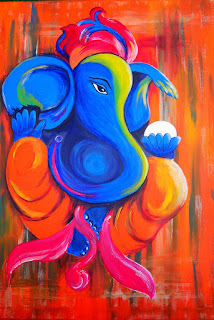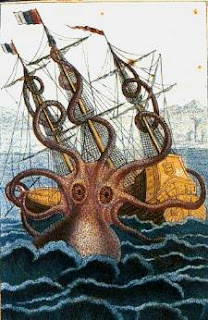Reading Notes: The Life of Buddha, Part A
This week I chose to explore the readings from, The Life of Budda by Andre Ferdinand Herold (1922), Part A. One of the parts to this story that I find unique is how the gods will speak to the people. For example, when Maya summoned King Suddhodana to the forest, he began to felt overwhelmed with fear, however, a higher power also referred to as a divine voice, reached out and spoke to him, reassuring the King that he "should be happy."
This story reminded me of the Virgin Mary, which I am not too familiar with biblical stories, but the connection I made was how the lead female character is impregnated by the gods, and the child who is born is a prophet. Another similarity is how the child's birth brings happiness and how that person will end a lot of the suffering that is amongst their people.
What I have always found interesting about stories like this, i.e., the gods impregnating a woman with a prophet, is that the husbands do not seem to question it. I understand that everyone's beliefs are different, but, in my perspective, if this were to happen in a modern society, the woman would be questioned about how she conceived the child. Further, using an analytical approach, there is only one way in which someone can conceive, and if the husband was not the one to partake in those acts, then I believe there would be tension between the two (Mary v. Joseph; Maya v. Suddhodana).
I think an interesting story could be created by setting it in modern times. The child, born from the gods, could be shunned by the kingdom, and with him, his mother. I like the twist in this story, where the mother suddenly passes away. The mother's death, in a re-created story, could be something that sparks vengeance within her child, and through this, he/she would start a war, or they would go through a spiritual metamorphosis, like Buddha, and travel through the land, bringing peace and with this, be reunited with their family and resolve the conspiracy of how they were conceived, absolving the mother of her sins.
This story reminded me of the Virgin Mary, which I am not too familiar with biblical stories, but the connection I made was how the lead female character is impregnated by the gods, and the child who is born is a prophet. Another similarity is how the child's birth brings happiness and how that person will end a lot of the suffering that is amongst their people.
What I have always found interesting about stories like this, i.e., the gods impregnating a woman with a prophet, is that the husbands do not seem to question it. I understand that everyone's beliefs are different, but, in my perspective, if this were to happen in a modern society, the woman would be questioned about how she conceived the child. Further, using an analytical approach, there is only one way in which someone can conceive, and if the husband was not the one to partake in those acts, then I believe there would be tension between the two (Mary v. Joseph; Maya v. Suddhodana).
I think an interesting story could be created by setting it in modern times. The child, born from the gods, could be shunned by the kingdom, and with him, his mother. I like the twist in this story, where the mother suddenly passes away. The mother's death, in a re-created story, could be something that sparks vengeance within her child, and through this, he/she would start a war, or they would go through a spiritual metamorphosis, like Buddha, and travel through the land, bringing peace and with this, be reunited with their family and resolve the conspiracy of how they were conceived, absolving the mother of her sins.
(India Hindu Deity Ganesha Elephant God. Source: Max Pixel)




Comments
Post a Comment